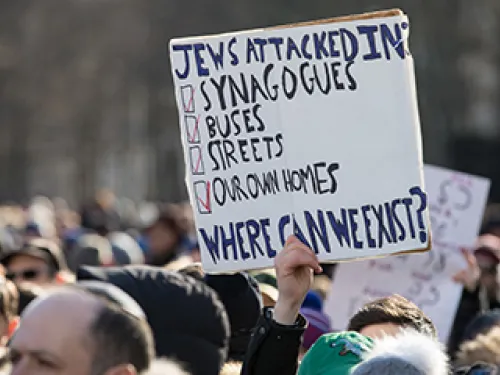Letters to the Editor
The Wall Street Journal
Now more than ever we need strong hate crime laws to ensure that the punishment for targeting individuals or institutions for violence or vandalism for no other reason than their religious affiliation, skin color or other personal characteristic is appropriate.
Contrary to Myron Magnet’s claims, hate-crime laws punish conduct and not thought (“‘Hate Crime’ Is Only a Step Away From Thoughtcrime,” op-ed, Jan. 2). Hate-crime penalty-enhancement statutes apply only when an individual commits a crime against someone and intentionally chooses his or her target based on the victim’s actual or perceived race, religion, national origin, gender, gender identity, sexual orientation or disability. Hate-crime laws do not punish bigoted ideas or hateful speech, which are protected by the First Amendment. This critical distinction has been upheld by the U.S. Supreme Court.
Mr. Magnet’s position that hatred and bias remain pervasive problems in society is absolutely correct, making his suggestion to do away with hate-crime laws puzzling and wrong. While we cannot outlaw hate, we certainly can enact laws that punish hate crimes. Like workplace antidiscrimination laws, hate-crime laws send a clear message to society that violence motivated by prejudice or bigotry is simply unacceptable.
The decade began with at least 11 incidents of anti-Semitic harassment, vandalism and assault in New York City. In the final weeks of 2019 there were at least 30 incidents there, as well as the stabbings in Monsey, N.Y., on Dec. 28. Now more than ever we need strong hate-crime laws in place to ensure that the punishment for targeting individuals or institutions for violence or vandalism for no other reason than their religious affiliation, skin color or other personal characteristic is fully commensurate with the societal harm hate crimes cause.
Jonathan A. Greenblatt
CEO and National Director







